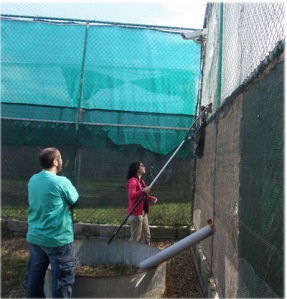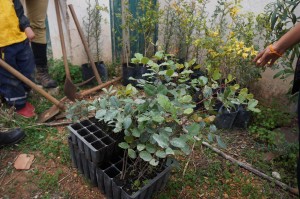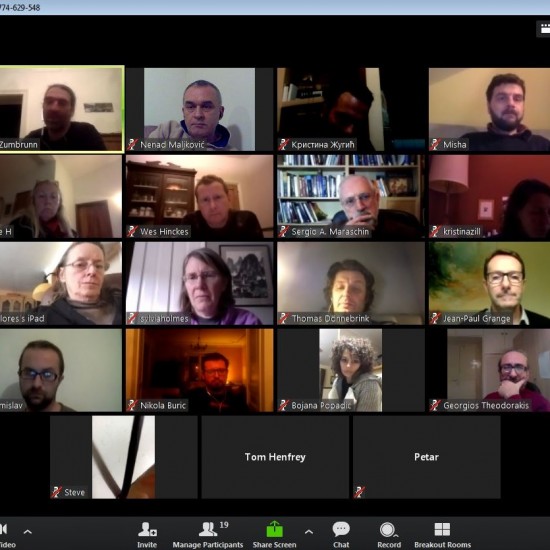The survival and preservation of wildlife – It is not a hoot!
Mrs Silva found the owl in August 2011. It was lying on a road in the Tavira area. It had been hit by a car and had a broken wing. At first it seemed the owl would never fly again. She carefully picked up the owl which was just a little bigger than her small hand and took it home to her family. That may have been the last anyone heard about this little owl, but Mrs Silva went a step further and contacted RIAS a project of Aldeia who are working in the Ria Formosa near Olhão. Aldeia is an association that aims to contribute to sustainable development, based on nature conservation and the preservation of culture and traditions that survive in rural areas. Aldeia manages a project called RIAS which stands for the Centre of Research and Recovery of Wild Animals of the Ria Formosa. The centre is located in the Ria Formosa, Olhão, Quinta do Marim.
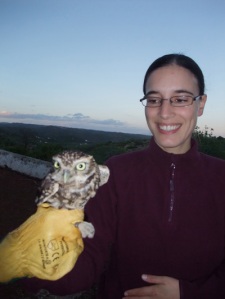
RIAS staff took the owl to their centre. They immobilised the owl and applied a splint and for over three months they monitored its progress and supported the owl as it learned to fly again in their flying cage. On November 14th RIAS along with Mrs Silva and family attended the Waldorf School near Tavira where children were invited to learn about the owl and watch as it took its first flight to freedom.
RIAS is now the Centre for Research and Recovery of Wild Animals of the Ria Formosa and has as its main objectives the recovery of wild animals, the investigation of risk factors for conservation and environmental education of the general public about the importance of Biodiversity. They have 15 large cage structures, two with small lakes. One of the largest cages is a flight cage and another is set aside for mammals such as foxes or badgers. Working as a wildlife hospital, the work of RIAS is the reception and treatment of animals that are found injured or debilitated. They later release wildlife whenever possible, where they were found. In addition, they also study dead animals, of priority species to try to understand the causes of death and thus determine the risk factors for wild populations. RIAS has an information centre where they keep the evidence of the sometime unwelcome human interaction with wildlife in the Algarve. Their concern is that many of the birds and animals that find their way into the animal hospital have shotgun wounds or have swallowed shot or have been found in home made traps.
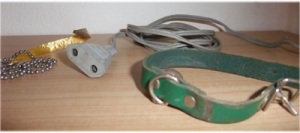
In recent times, RIAS staff found a fox with a very small dog collar and bell around its neck with electrical wire used as a lead. A fish hook was found in a gannet. A kestrel was found with a 12 inch chain in its stomach.
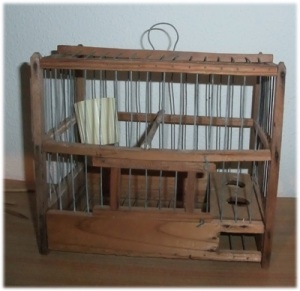
Many birds are found poisoned. This is because humans, possibly hunters, leave poisoned carcases of animals, such as chickens in areas where foxes will wander by, eat and then die. The problem with this is that not just the fox that eats the carcase, many birds also feed on the carcase and are poisoned. Last year two black vultures were found poisoned because of this habit. They were taken to RIAS and after a long period of treatment they were eventually released. Another problem is dogs, often feral dogs or even hunters dogs or domestic dogs, are destroying nesting areas in the Ria Formosa. In one area alone, 80% of the eggs have been destroyed by dogs not on a leash.
Since January 2011 they have received, 743 animals/birds/reptiles and have released 270 back into their natural habitat. 60 are still receiving treatment. In 2010 they received 1085 animals/birds/reptiles and released 45%. Many are measured and ringed before release so that if found again, progress or further knowledge can be gained. Given that they have a 45% release rate, they look after more than twice that amount of creatures as many die because of human thoughtlessness. They are currently treating seagulls from Portimão unable to fly because of oil on their wings. They also have 2 Booted Eagles, 3 Falcons found with shotgun wounds, a Griffin Vulture, some Barn Owls along with small birds that have been kept illegally in cages such as finches and sparrows.
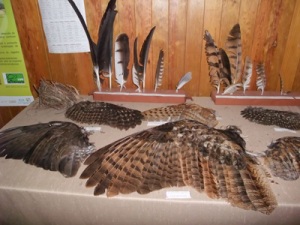
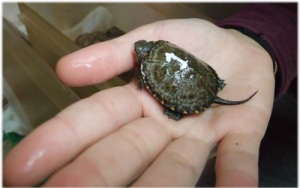
In addition to injured animals they are also working on a project called LIFE+Pond Turtles (a European programme) to reintroduce a number of endangered pond turtles that are being killed by exotic pond turtles brought in from Florida to pet shops in the Algarve. Alongside the preservation of this endangered species they have an education programme which is advising people not to put the exotic pond turtles into water sources once they are bored with them as pets. The exotic pond turtle eats the eggs of the indigenous Portuguese pond turtle thus endangering their survival. The LIFE+ project has hatched so far this year, 43 indigenous pond turtles and will release them back into the environment when they are 2 years old.
Another example of their educational work is the work they are doing with Hunter Associations. They are encouraging Hunter Associations to come to the centre, to look at what happens to a bird when it has been shot. They encourage them to take part in the release of birds that have previously been shot and treated, trying to educate them about the implications of interfering with the natural cycle of the food chain. So for example, a hunter who kills a fox which would have killed a diseased rabbit (such as those with Myxomatosis) is interfering with natural disease control.
RIAS has three staff – a co-ordinator, a part-time veterinary surgeon and a person who prepares food and feeds the animals. They currently have ten volunteers, but could do with many more adults who would be willing to offer their time and skills. They really need people who can offer a range of skills including computer skills, in particular how to fix their laptop. In fact they could probably do with a new laptop that works. They also want someone to help with marketing, merchandising and design of publicity materials. Of course they also want people who will help care for the animals under expert supervision.
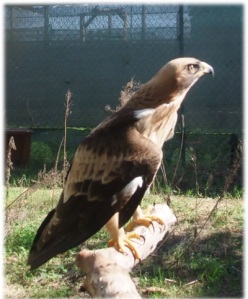
RIAS works under the guidance of the Institute for Nature Conservation and Biodiversity (ICNB), and receives financial support from ANA – Airports of Portugal in the framework of the “Business & Biodiversity” programme. Like everyone else their funding has been cut and they now have only a year left of secure funding.
RIAS has organised a fundraising event to take place on 10th December at the Casa do Povo in Moncarapacho. The event starts at 2pm with a Christmas Fair and they have activities going on all day, such as Scottish dancing and later a disco. At 8pm, from the top of the Casa do Povo, they will release a barn owl that has been recuperating at the hospital.
From this fundraising initiative they want to:
- Build a small wooden building to house an endangered species of pond turtles
- They want to be able to finish covering some of the outside cages. They either need the money to hire a machine that will elevate people to a height that enables them to cover the cages with netting or a company that will offer its services to do the work.
- They also really need a vehicle to transport the animals. Staff are currently using their own vehicles to release the animals back into the environment.
More information about the RIAS project can be found on their blog at
rias-aldeia.blogspot.com
Phone 00351 927 659313
Email rias-aldeia@gmail.com
What do I do if I find an injured wild animal?
If you find an injured wild animal you should:
1. Try to avoid upsetting it by minimizing noise, the handling time and contact with people;
2. Use a towel or cloth to cover the animal’s head which avoids visual stimuli. Try to stay calm and put it in a cardboard box which is a size that can give it a little room to move. The box should have small holes so that the animal can breathe. Make sure the beak/snout/talons/claws are protected and will not be hurt whilst transporting the animal in the box.
3. Do not keep the animal in your possession any longer than is strictly necessary and do not try to heal or feed the animal. This can be detrimental to the rehabilitation process.
4. Immediately call one of the following services:
SEPNA-GNR: 21 750 30 80
SOS Ambiente: 808 200 520 (environmental helpline)
PNRF: 289 700 210
